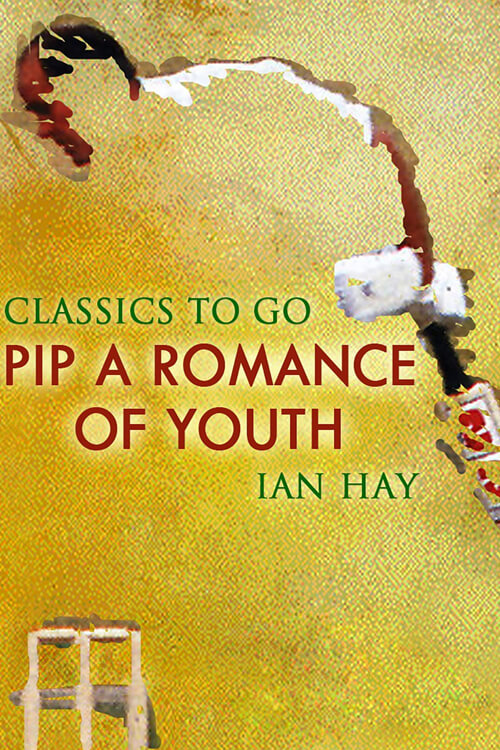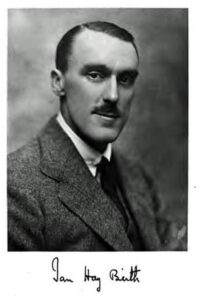
”Pip”A Romance of Youth
It was to Pipette that the idea initially occurred, but it was upon Pip that parental retribution subsequently fell, Pipette being merely dismissed with caution. This clemency was due chiefly to the intercession of Cook, who stated, in the rôle of the principal witness, that the “poor lamb” (Pipette) “could never have thought of such a thing by herself.” This is despite the poor lamb’s indignant protests to the contrary. In this matter, as in many others, Cook showed both personal bias and want of judgment; for Pipette was as sharp as a needle, while Pip, though a willing accomplice and a philosophical scapegoat, was lacking in constructive ability and organizing power.
But we have somehow begun at the end of the story, so must make a fresh start.
The Consulting Room, which was strictly out of bounds (and consequently a favorite resort of the children when the big, silent man, who kissed them twice a day, was out), contained many absorbingly interesting and mysterious objects, whose uses Pip and Pipette were dying to know. For instance, there was the Oven Door. It was set in the wall near the fireplace, miles up,—quite five feet,—and was exactly like the oven in the kitchen, except that it was green instead of black. Also, it had a beautiful gold handle. It was not hot, though, for one day Pip climbed on a chair to feel; neither did it open, for he was unable to turn the handle.
They had asked Mr. Evans about it, and he had informed them that it was a place to put bad little boys and girls in. But that was on a day when Mr. Evans was cross, having just had words with Cook about the disgraceful delay between the fish and joint at last night’s dinner. Pipette, therefore, outwardly incredulous but inwardly quaking, appealed to Cook, and asked confidentially if the strange thing were not an oven; whereupon Cook embraced her and presented her with an apple, and wondered what the little precious would get into her poor head next, adding as an afterthought that Mr. Evans ought to be ashamed of himself. Pipette was so pleased with the apple and the task of conveying Cook’s message to Mr. Evans’s pantry—this was the name of the place where he lived; there was a delightful thing there called the Filter, with a little tap that you could turn on if no one was looking—that she quite forgot to ask what the Oven Door was; so the mystery remained unsolved for many a day.
Read or download Book
Ian Hay
Major General John Hay Beith, CBE MC (17 April 1876 – 22 September 1952), was a British schoolmaster and soldier, but is best remembered as a novelist, playwright, essayist, and historian who wrote under the pen name Ian Hay.
After reading Classics at Cambridge University, Beith became a schoolmaster. In 1907 his novel Pip was published; its success and that of several more novels enabled him to give up teaching in 1912 to be a full-time writer. During the First World War, Beith served as an officer in the army in France. His good-humored account of army life, The First Hundred Thousand, published in 1915, was a best-seller. On the strength of this, he was sent to work in the information section of the British War Mission in Washington, D.C.
After the war, Beith’s novels did not achieve the popularity of his earlier work, but he made a considerable career as a dramatist, writing light comedies, often in collaboration with other authors including P. G. Wodehouse and Guy Bolton. During the Second World War Beith served as Director of Public Relations at the War Office, retiring in 1941 shortly before his 65th birthday.
Among Beith’s later works were several war histories, which were not as well received as his comic fiction and plays. His one serious play, Hattie Stowe (1947), was politely reviewed but had a short run. In the same year, he co-wrote a comedy, Off the Record, which ran for more than 700 performances.
Bibliography
Books
- Pip, 1907
- The Right Stuff, 1908
- A Man’s Man, 1909
- A Safety Match, 1911 (illustrated by Frank G. Cootes)
- Happy-Go-Lucky, 1913
- A Knight on Wheels, 1914
- The Lighter Side of School Life, 1914
- The First Hundred Thousand “K (1)”, 1915
- Carrying On, 1917
- The Last Million, 1918
- The Willing Horse, 1921
- The Lucky Number, 1923
- The Shallow End, 1924
- Paid in Full, 1925
- Paid With Thanks, 1925
- Half-a-Sovereign, 1926
- The Poor Gentleman, 1928
- The Middle Watch, 1930
- Their Name Liveth, 1931
- The Midshipmaid, 1933
- The Great Wall of India, 1933
- David and Destiny, 1934
- Lucky Dog, 1934
- Housemaster, 1936
- The King’s Service, 1938
- Stand at Ease, 1940
- Little Ladyship, 1941
- America Comes Across, 1942
- The Unconquered Isle (Malta, GC), 1943
- The Post Office Went to War, 1946
- Peaceful Invasion, 1946
- ROF, the Story of the Royal Ordnance Factories, 1948
- Arms and the Men, 1939–1945
- The History of the King’s Bodyguard for Scotland (1676–1950)
- 100 Years of Army Nursing, 1953 (published posthumously)
- Cousin Christopher, 1953 (published posthumously)






